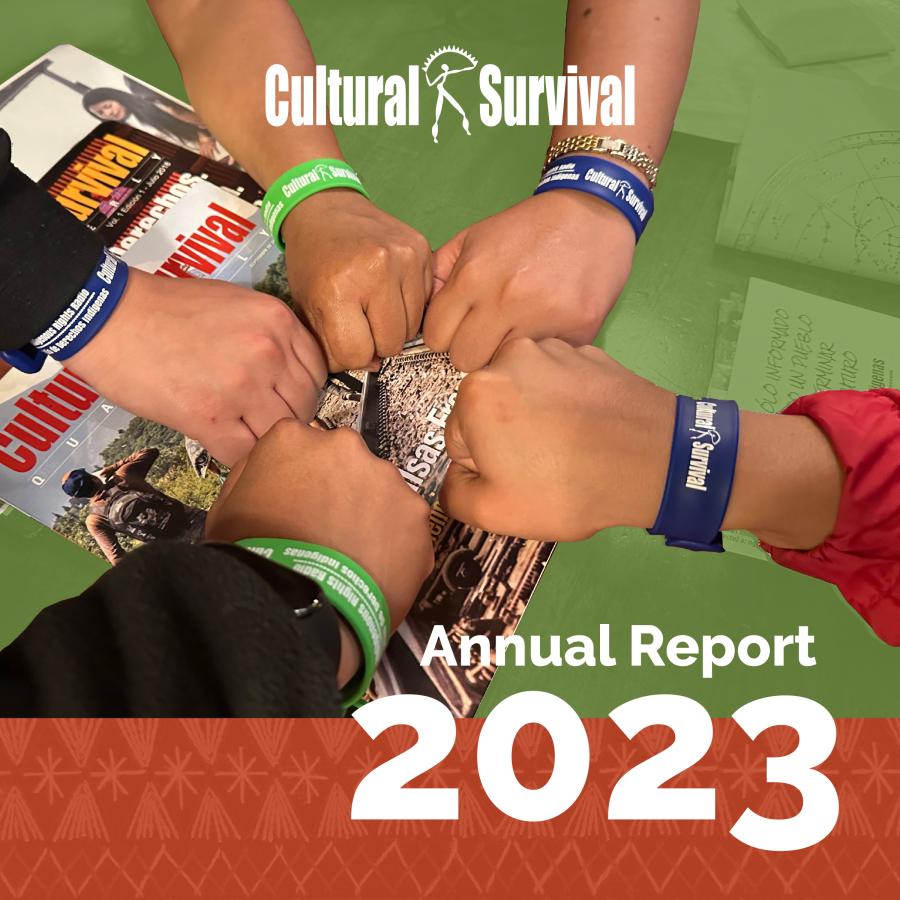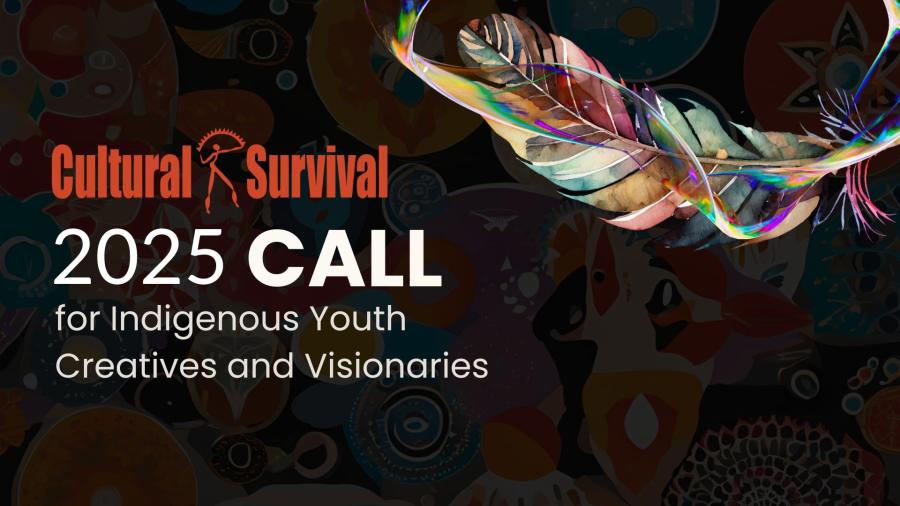
For Immediate Release
Indigenous-led Summit Examines Impacts of the Energy Transition and Centers Indigenous Peoples’ Priorities and Solutions
JUST TRANSITION: Indigenous Peoples’ Perspectives, Knowledge and Lived Experiences
October 8-10, 2024, in Geneva
April 15, 2024 - The Indigenous Peoples Global Coordinating Committee, in partnership with Securing Indigenous Peoples Rights to a Green Economy (SIRGE) Coalition, is pleased to announce JUST TRANSITION: Indigenous Peoples’ Perspectives, Knowledge and Lived Experiences, an international forum that will take place on October 8-10, 2024 in Geneva, Switzerland.
Governments and companies are increasingly pushing a transition to a low-carbon economy as the primary driver to solve the climate crisis and negative environmental impacts. In their rush for a solution, they often ignore requirements to recognize and integrate Indigenous Peoples' rights as enshrined in the United Nations Declaration on the Rights of Indigenous Peoples (UNDRIP), including the right to self-determination and Free, Prior and Informed Consent (FPIC). Without securing Indigenous Peoples’ FPIC and without Indigenous Peoples’ participation throughout project development and implementation, transition mineral mining perpetuates the same harms and rights violations as fossil fuel and traditional resource development.
The goal of JUST TRANSITION: Indigenous Peoples’ Perspectives, Knowledge and Lived Experiences is to challenge mainstream interpretations and implementations of what the Just Transition to a “Green Economy” is being defined as, which often does not represent a full transition from harmful impacts or real justice for Indigenous Peoples. The summit will affirm a rights-based approach related to any potential extractive projects proposed on Indigenous lands, with criteria and safeguards for projects and actions aligned with the Just Transition. This framework is based on the inherent collective rights articulated in UNDRIP, including the right to self-determination, FPIC, culture, lands, and territories, participation in decision-making, and the Paris Agreement.
Over 150 representatives of Indigenous Peoples from the seven socio-cultural regions of the world will gather to collectively define a Just Transition and the “green economy” from Indigenous perspectives.
Rodion Sulyandziga (Udege), Chair of the IPGCC, says “The Summit will serve as a pivotal moment for indigenous peoples to come together, share their experiences and chart a path forward to a more equitable and sustainable future. At its core, the summit seeks to address the urgent need for a just transition, one that respects and upholds the rights and values of Indigenous Peoples.”
Galina Angarova (Buryat), Executive Director, SIRGE Coalition: “SIRGE Coalition is deeply honored to support Indigenous leaders and representatives from all seven socio-cultural regions of the world who are coming together for a critical discussion on defining what Just Transition and Green Economy are from the Indigenous perspective. This gathering will provide insights into the impacts of the Energy Transition on Indigenous Peoples and emphasize the critical importance of centering Indigenous Peoples’ priorities and solutions for a truly sustainable future. Indigenous Peoples hold invaluable wisdom rooted in time-tested solutions that have persevered for millennia. It is high time for the world to recognize and uplift these solutions, embracing them as essential pathways to enact meaningful change and foster genuine sustainability.”
While mining for transition minerals is widely advanced as the solution to climate change, it is consistently linked to environmental destruction and negative human impacts that disproportionately affect Indigenous Peoples. Some of these harmful impacts include loss of biodiversity, violent conflicts with Indigenous communities, forced displacement, resource depletion, and land, water, and air pollution. Additionally, mining operations contribute to greenhouse gas emissions, exacerbating climate change.
It is crucial to shift away from fossil fuels, but it is equally important to avoid adopting other harmful practices that replicate the same problems. Indigenous Peoples manage over a quarter of the Earth’s lands, which is home to 80 percent of the world’s remaining biodiversity. Through close relationships with their lands, water, and other natural resources over millennia, Indigenous Peoples have a deep understanding of the significant social and environmental impacts that occur from the extraction and production of transition minerals, including land use changes, water contamination, and displacement of Indigenous Peoples. A transition to the “Green Economy” cannot happen without Indigenous Peoples’ participation and leadership.
The forum will dive deeper into these topics and share perspectives and knowledge on how we can move forward in the energy transition while securing the rights of Indigenous Peoples.
About
The Indigenous Peoples Global Coordinating Committee (IPGCC) consists of Indigenous leaders and organizations from all seven socio-cultural regions that are coordinating and hosting the first Indigenous Peoples’ summit on a Just Transition to develop the common position and the IP Declaration based on their values, principles, and vision.
The Securing Indigenous Peoples’ Rights in the Green Economy (SIRGE) Coalition implements transformative solutions to secure the rights of Indigenous Peoples in the global transition to a green economy. With respect to the transition mineral supply chain, SIRGE Coalition focuses on the urgent need to operationalize Free, Prior and Informed Consent (FPIC) as enumerated in the United Nations Declaration on the Rights of Indigenous Peoples. The Coalition is made up of First Peoples Worldwide, Cultural Survival, Earthworks, Batani Foundation, and Society for Threatened Peoples, with new affiliate member International Work Group for Indigenous Affairs (IWGIA).
Media Contact: noreen@sirgecoalition.org
###



